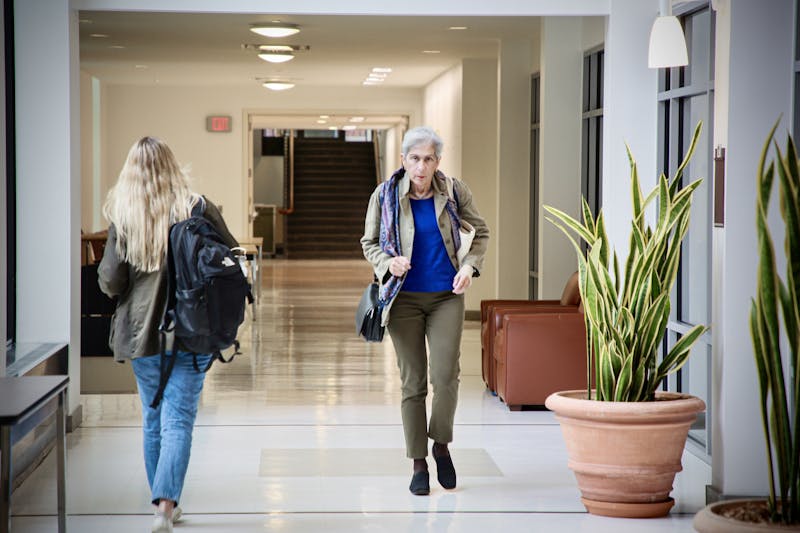While many college students spend the summer months relaxing at the beach, others are spending their time organizing protests and staging rallies. Activism, or so it seems, knows no vacation. Members of the United Students Against Sweatshops, the nation's largest anti-sweatshop organization, met Tuesday with President Clinton's assistant for economic policy, Gene Sterling, to discuss what they feel is a failure by the federal government to adequately address sweatshop abuses. The group, of which College senior Miriam Joffe-Block is a member, specifically demanded that the Fair Labor Association provide full public disclosure of factory locations -- which Joffe-Block called the "most important step in addressing issues of labor regulations" -- as well as living wages for factory workers. "The Clinton administration is taking a backseat," said Joffe-Block, who is also a member of Penn's Progressive Activist Network. Joffe-Block said Sperling was "noncommittal" during the meeting and did not guarantee that any of the students demands would be met. And last week, approximately 200 college students participated in a five-day conference in Washington, D.C. where students once again voiced their collective dismay that their universities have not released public lists of all factories that manufacture University-licensed clothing and goods. The recent developments are evidence that the anti-sweatshop movement, which reverberated throughout college campuses this year, have garnered momentum. In early March, students at seven of the eight Ivy League schools -- Dartmouth College being the exception -- sent letters to their respective presidents demanding "timely, forthright responses" to four specific demands. The students requested more student involvement in the issue by urging the schools to permit student representatives at meetings of the Ivy League task force on sweatshops; independent monitoring of manufacturing sites; a living wage for factory employees; and public disclosure of the exact addresses of every factory that produces official school-logo apparel. Some students have long complained that the FLA regulations are not sufficient in preventing sweatshop abuses. "The current patterns of trade facilitate sweatshop conditions," Joffe-Block said, adding that the FLA regulations, as they stand, "allow worker abuses to go on." Now, several months later, the movement is attracting the attention of national politicians. U.S. Senator Paul Wellstone of Minnesota sent a letter to, among others, Clinton and Commerce Secretary Richard Daley, in which he voiced his support of the anti-sweatshop movement. "I am convinced that the most effective strategy for eliminating sweatshops is the promotion of labor rights, and the right to organize in particular," Wellstone wrote in the letter. And Joffe-Block said, "A lot of people have been telling us that this is the hottest student movement to come around in a while." Joffe-Block said she believes the national attention that the movement is currently receiving will be beneficial when classes start in September. Although she said she has no specific plans for any demonstrations at Penn in the near future, she did say thatshe has been consulting with University Associate General Counsel Eric Tilles.
The Daily Pennsylvanian is an independent, student-run newspaper. Please consider making a donation to support the coverage that shapes the University. Your generosity ensures a future of strong journalism at Penn.
DonatePlease note All comments are eligible for publication in The Daily Pennsylvanian.







